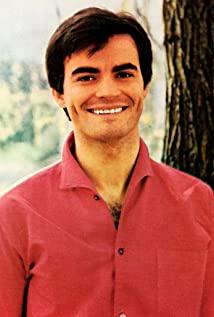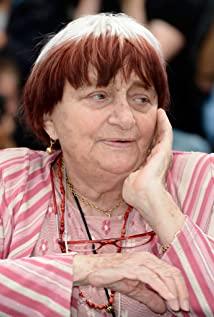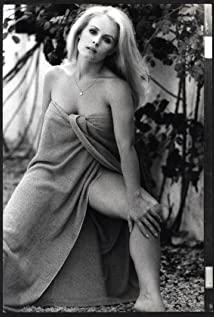Shortly after filming the then controversial and now rare "Happiness," Agnès Varda wrote that she envisioned the film as "beautiful but borer summer fruit." More than four decades later, people In this statement, as Buñuel criticizes the degeneration of the bourgeoisie, Sike subverts saturated surfaces and outdated narratives, and exposes the turbulent undercurrents in the quiet life of classic Hollywood (represented by David Lynch on one end, American Beauty on the other " as the representative) of the echo. Then and now, there's a lot of joy in watching the chaotic, insane forces eroding the allure of a movie. When "Happiness" opens its doors to Mozart's carefree tune, filled with images of daylight, sunflowers, and family members holding hands, contemporary audiences are immediately drawn to the joke, and those educated in satirical films for years are accustomed to contempt Eyes to respond to these symbols. We've been able to guess that the film talks about the tyranny of eternal happiness. What follows is a brutal, animalistic version of a story that actually destroys the original portrait of a happy family. But the predictability ends there. The power of Varda's film is that, even in this shrewd age, it is astounding, and we are as uncertain and skeptical of its purpose as its first audiences.
Like the protagonist of Varda's 1985 film "The End of the World," Husband-Father-Father François (played by Jean-Claude Druout) ignores the norms of Western society; their central difference is that he Live in a world of his own making, free from being victimized by his actions. The opening scene shows him frolicking outdoors with his two unnaturally well-behaved children, occasionally having sex with his beautiful wife on a blanket in the grass. When he fell in love with another woman, he did the same, acting like a young boy's innocent adoration. He found, to his pleasure and convenience, that the extramarital affairs made his marriage better, not a distraction, and he expected his wife to approve of these new situations. "Happiness is additive," he explained. If she's devastated by his confession, you won't see that on her face either; there's no doubt the love continues, at least until the plot turns to an unavoidable but ambiguous tragedy.
Part of what makes the film shocking is that the brutality of the story takes place in an enclosed space. No one can blame François for his trouble-free life; only we - the audience - can disagree. The film buries the rules of moral society so deeply that it relies on us to provide a point of reference, and it even prevents us from doing it. Varda highly restores a willful patriarchal soul, accurately depicting the world imagined by men, which is completely unified in his perspective, and its selfishness is even more disturbing. Despite its bright and crisp tones, the film—read as pure satire—is as scathing as a Katherine Brea portrayal of camaraderie, and as chaotic as a mixture of sexual openness and sexual insults.
Art propelled only by contempt can be exhausted, so Varda's incessant sarcasm is always threatening to strike. To fully understand the audacity of "Happiness" needs to accept that we interpret the film as a satire, a somewhat one-sided reaction, allied with a certain faction in the ongoing sexual morality war. Yes, the film is an attack on gender norms that prevent women from expressing themselves and refute male desires; Varda builds a male paradise in which desire and love have no emotional consequences, and then asks us if we find it desirable. But at the height of the sexual revolution, did she ever sincerely discuss some utopian visions? Is Francois an accidental hero whose frankness about desire should we appreciate? We have no way of reacting to the ideals or nightmares that the film presents without expressing our feelings about the sexual liberation that was popular at the time, especially polyamory. But to really engage in the film's discussion of love, sex, death, and family, we have to consider the possibility that this version of heaven is, in some way, desirable. We might ask: the traditional notion of nuclear family happiness is an illusion anyway, so why does an open marriage offend us? If we admit that the chaotic nature of love has been overshadowed by overly romantic expectations, why can't we accept that multiple, simultaneous loves can last as long as monogamy? Are so-called deep emotions and commitments just lies that we use to maintain the artificial divide between humans and animals?
Even if Varda makes us think about these questions, her conclusions about this male-exclusive fantasy are clear. At the end of the day, it probably doesn't matter whether we see "Happiness" as dystopian (because its women are exchangeable and disposable) or utopian (because it embraces the full-scale, unpredictable impulses of human beings). The film constructs an Eden, a pre-shame world in which individual feelings are perfectly legitimate and never conflict with the feelings of others. Varda establishes the crucial connection between morality and emotion, but the world she creates exists outside of the two and is therefore detached from reality. One of the most fascinating conflicts in "Happiness," a film that essentially denies conflict, stems from the audience's uncertainty about how to make sense of this self-conscious dream world. The movie is firmly rooted in the psyche of the male protagonist, but never exists in a real space (rather than just conceptual or symbolic). Characters are cardboard figures who never breathe, let alone make choices for themselves. At times, before the catastrophic cumulative effect seeps in, the film gives the impression of a stall, never making successful art or delivering a successful point of view. But it's a constant surprise that even with Varda's caked-on blessing, François's behavior can unsettle us.
Happiness is both a harsh critique of free love and an empathetic exploration of its seduction. The film's visuals are both festive and sad. In Varda's eyes, nature becomes terrifying, as are those (yet "natural") feelings that expose human brutality. Varda knew something about the eye-catching Technicolor (perfected in her husband Jacques Demy's Umbrella at Cherbourg) and the soft, nostalgic palette of the Impressionist paintings, and the photography of Bliss approximates both styles. She knows that the colors that symbolize happiness can never escape fragility and impermanence: all it takes is a little rain to wash them away.
"Happiness" might be considered one of the many precursors to radical productions like "Blue Velvet" and "Fat Girl", but Varda's film developed in a way that Lynch and Brea could never have done. On the subject of the horrors of everyday life, the best works of contemporary art often use innuendo or paradox, never with the sweetness of integrity that leads us to unexpected cruelty and stores our most selfish desires. conflict. Good can breed evil, and can also coexist with cruelty, these are the rhetorical acknowledgments of this typical film. Varda doesn't hide the absence of nuance or ambiguity with her bold style. Even for such a stylized film, she presents all the paradoxes, the most impossibly pleasant country times become a mirror of our most complex reality. In the beginning, the summer palette and sunflower imagery might scream irony, but not the kind that rolls your eyes and you can trust or participate in it. Rather, it is disorienting, a trapdoor to a deeply uncomfortable ethical dilemma.
View more about Le Bonheur reviews










